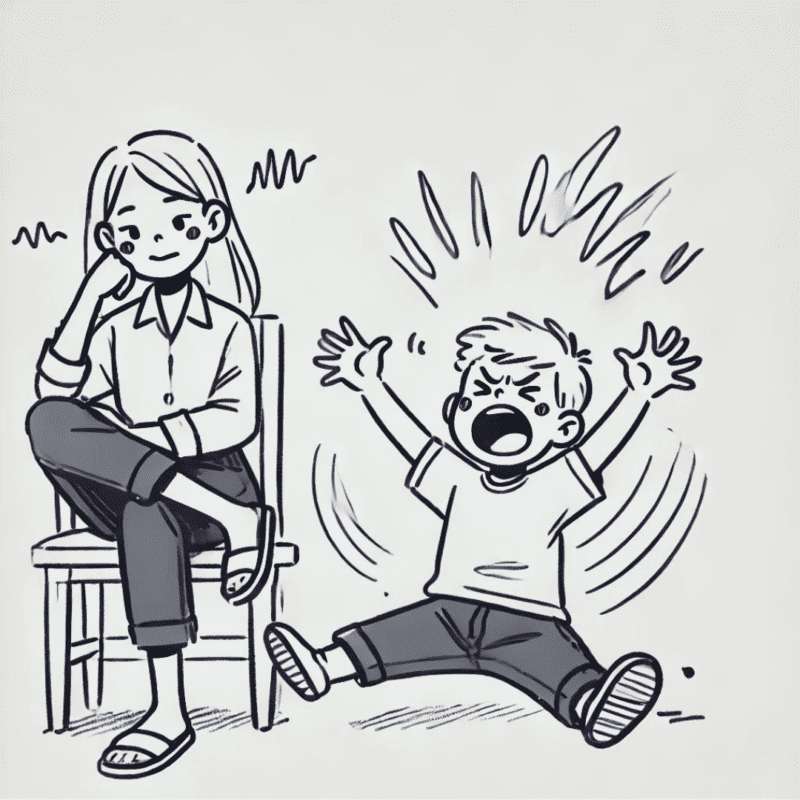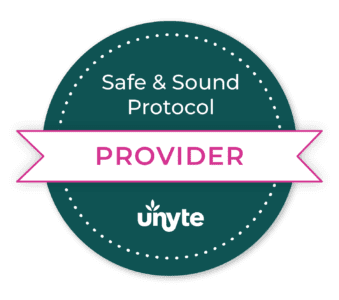If you’ve ever wished for a parenting strategy that lets you not respond to your child’s endless whining, tantrums, or the fifth question in a row about what’s for dinner because I’m STARVING NOW—then get ready, because I have the answer you’ve been dreaming of: planned ignoring! Yes, you read that right. It’s not only okay to ignore certain behaviors, but it’s also scientifically backed and actually good for your child.
What Exactly Is Planned Ignoring?
Planned ignoring is a parenting technique where you deliberately choose not to react to certain negative behaviors that are aimed at getting attention—like whining, complaining, or throwing a fit because they didn’t get the exact shade of blue crayon they wanted. By withholding your attention, you take the wind out of their sails. In essence, you’re teaching them that those behaviors won’t work, and it encourages them to use healthier ways to get your attention.
This technique doesn’t mean you’re ignoring your child altogether (don’t worry, no one is suggesting you pretend you don’t see them for the next 18 years). It simply means that you’re strategically ignoring behaviors designed to push your buttons, while still being emotionally present and engaged when they aren’t trying to test the limits of human patience.
Does Ignoring My Child Make Me a Bad Parent?
Not even close. In fact, it can make you a better parent. Planned ignoring is not about withholding love or connection; it’s about teaching your child that negative attention-seeking behaviors won’t get the reaction they’re after. And here’s the kicker: science says it works without causing harm.
Children who experience planned ignoring are not left feeling isolated or shamed. In fact, studies show that ignoring certain behaviors while reinforcing positive ones helps kids develop self-control and emotional regulation. You’re not neglecting their bids for connection—you’re simply setting boundaries on how they connect with you. And, let’s be honest, you’ll both be happier when they learn to ask for attention politely rather than throw themselves on the floor in protest of a lost screen-time privilege.
So rest easy, knowing that strategically ignoring a tantrum isn’t going to leave your child emotionally scarred. In fact, they’ll grow up with better self-regulation, a stronger sense of appropriate behavior, and, most likely, fewer meltdowns in the snack aisle at the grocery store.
Why It’s Especially Important for Kids with ADHD
Planned ignoring is even more crucial for kids with ADHD, who often struggle with impulse control and emotional regulation. These kids are naturally wired to act on impulse, which means they may engage in more frequent attention-seeking behaviors without even realizing it. And let’s be real—if you react to every one of those behaviors, you’ll spend your entire day in a back-and-forth battle, which benefits neither of you.
For kids with ADHD, planned ignoring teaches the valuable skill of self-regulation. When they realize that dramatic or impulsive behaviors won’t get your attention, they’re encouraged to slow down, think, and communicate in healthier ways. It’s a simple but powerful way to help them learn to manage their impulses and emotions.
Plus, planned ignoring helps reduce the constant cycle of negative attention these kids might experience. Instead of always hearing “stop that,” “don’t do that,” or “calm down,” they’ll learn that some behaviors just won’t get a response. When they figure out that whining or interrupting doesn’t work, they’ll naturally turn to more appropriate behaviors—and you’ll be there to praise and reinforce those positive actions.
A Couple of Real-Life Examples
Example 1: The Snack Standoff
Meet Sarah and her son, Ben, a 6-year-old with an undying love for snacks. It’s right after lunch, and Ben starts up: “Mooooom, can I have a snack? I’m starving!” Sarah, who used to engage in snack negotiations (and often lost), now uses planned ignoring. She calmly says, “Snack time is later,” and then focuses her attention elsewhere. Ben ramps up the whining, but after a few minutes of no response, he gives up. Victory is hers!
Example 2: The Constant Interrupter
James is catching up with a friend, but his 8-year-old daughter, Ella, has other plans. She interrupts repeatedly with random questions: “Dad, what’s your favorite dinosaur? Dad, what’s 100 times 100?” In the past, James would’ve paused the conversation to answer, but today he’s all about that planned ignoring. He stays focused on his conversation while Ella realizes that her interruptions aren’t working. Eventually, she waits patiently—and later, James praises her for doing so.
How to Nail Planned Ignoring (Without Losing Your Sanity)
Stay Cool: When your child’s behavior starts to escalate, stay as calm as a yoga instructor at sunrise. The key to planned ignoring is keeping your cool. Even a sigh or an eye roll counts as attention—so zip it and focus on something else.
Pick Your Battles: Not every behavior should be ignored (sorry, planned ignoring doesn’t apply when they’re about to punch their brother). Use this technique for minor attention-seeking behaviors, like whining, interrupting, or minor tantrums.
Praise the Positive: Once the unwanted behavior stops, jump in with some positive reinforcement. “Wow, you waited so patiently!” or “Thanks for asking politely this time!” Positive reinforcement will teach your child what behaviors do get your attention.
The Science Behind It
Planned ignoring is grounded in real psychological research. It’s a form of what experts call differential reinforcement—basically, rewarding the good stuff and ignoring the bad stuff. Studies show that behaviors that don’t receive attention will eventually disappear, while positive behaviors thrive when they’re reinforced.
And before you worry that ignoring the whining means you’re abandoning your child emotionally—don’t. Research supports the idea that planned ignoring helps children, especially those with ADHD, develop better self-regulation skills without causing harm to their emotional wellbeing. Instead of feeling isolated, children learn healthier ways to seek attention and interact with the world around them.
Final Thoughts: A Parenting Tool You’ll Love
Planned ignoring is the secret weapon you didn’t know you needed. Not only does it give you permission to not respond to every minor behavior, but it also teaches your child valuable skills like patience, self-regulation, and how to ask for attention appropriately. Whether you’re dealing with a snack-loving 6-year-old or an impulsive 8-year-old with ADHD, planned ignoring is a simple, effective strategy that’ll help bring peace to your home.
-

Exploring the complexity of people and their stories, finding and celebrating redemption, strength, and courage in the wake of suffering, and seeking purpose and meaning in daily life—these are the pursuits I share with my clients. Every day, I’m in awe of the impossible things they accomplish. Truly, how lucky am I? Outside of my practice, I soak up life with my husband, three kids, a house full of animals, and more chickens than I ever expected.
View all posts
 (281) 305-9387
(281) 305-9387









